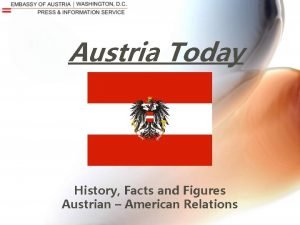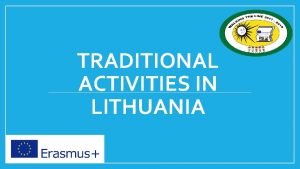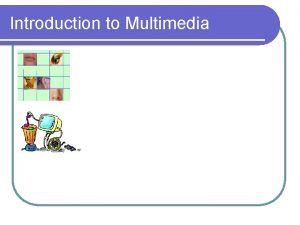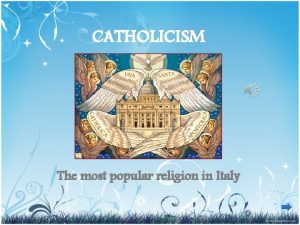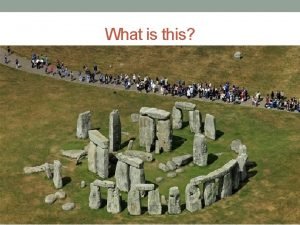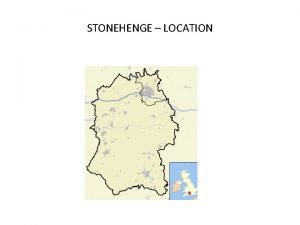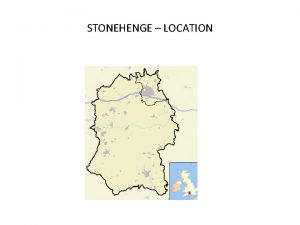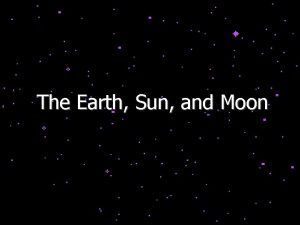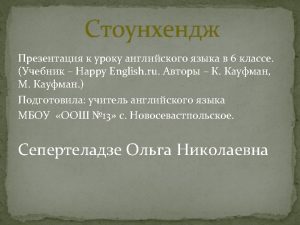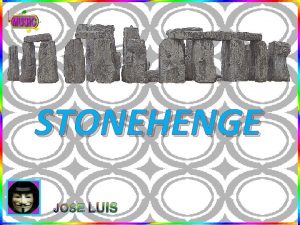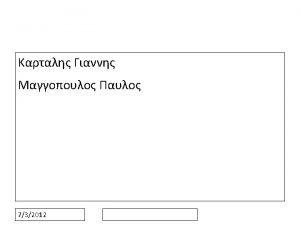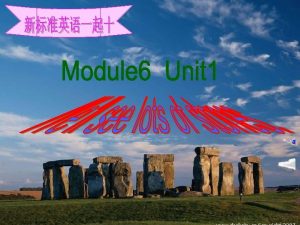Stonehenge Stonehenge is one of the most popular










- Slides: 10

Stonehenge

Stonehenge is one of the most popular prehistoric monuments in Europe. It is located in Wiltshire, England. There are many ideas about how this monument was created. Archeologists believe that it was raised between 3000 and 2000 BC. Some people think that these giant rocks were raised between 2400 and 2200 BC. Other theory suggests that it was raised at the site as early as 3000 BC.

Stonehenge location

Name of monument The name comes from the Old English, the words - stān (stone) and hencg (hinge) or hen(c)en (gallows). From the word henge a word henges (circles) was created - now the objects of this shape are called this name.

Construction The stones of Stonehenge are set in the shape of the circle. There is an alley before the monument. There is the Heel Stone near the Stonehenge (it was probably the place used for an astronomic purposes). There are two trenches that indicate East and West on 21 st March when you are on the top of the Heel Stone.

Plan of Stonehenge

Secrets:

� No one knows how prehistoric people raised giant and heavy stones. � No one knows when it was built. � Maybe it was place where the Sun or other deities were worshipped (the kind of temple).

� Maybe it was stone calendar. � The archeologists discovered that the daggers and weapons are engraved in the stones, but they don’t know yet what it means. � Maybe it was a cemetery and all of the stones were tombstones.

Thanks for watching my presentation Patrycja Orman
 Before newspapers were invented town criers
Before newspapers were invented town criers The beatles became the most popular
The beatles became the most popular Most popular religion
Most popular religion Most popular lan technology
Most popular lan technology Popular sports in austria
Popular sports in austria Popular sports in lithuania
Popular sports in lithuania The internet is the world's largest
The internet is the world's largest Magnetic storage devices
Magnetic storage devices Elements of multimedia
Elements of multimedia Most popular religion in italy
Most popular religion in italy Difference between taungya and shifting cultivation
Difference between taungya and shifting cultivation




